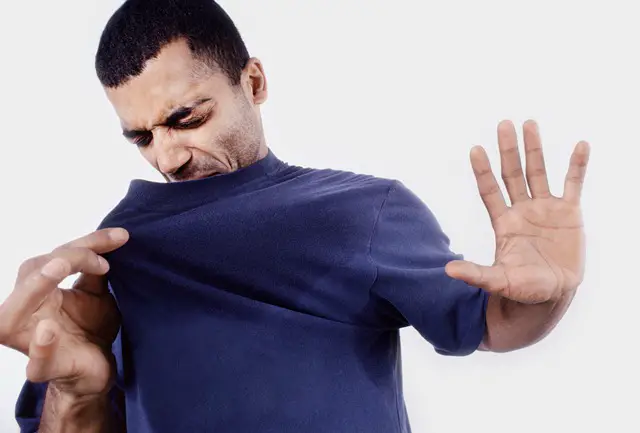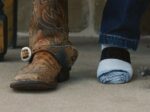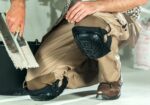We’re all aware of moisture wicking clothes as they’re the best for your tough job, gym or even yoga classes where there are chances of you sweating profusely.
The technical fibers used in its manufacturing perform an excellent job of wicking away perspiration and keeping you cool and dry. They do, however, have a tendency for trapping and maintaining body odor.
Yes, your moisture wicking shirt absorbs and retains body odor, particularly after you’re done with an intense working session that leaves you sweating excessively.
The bacteria on your skin is responsible for the foul smell. These moisture wicking garments are typically composed of polyester, which, unlike natural fabrics like cotton, absorbs odor and makes it more difficult to remove.

If you can just give this article a few minutes, we assure you it will help you understand the nature of your moisture wicking clothes, how to maintain them and what you should avoid.
Let’s get started with How do moisture wicking clothes work?
Polyester, nylon, lycra, spandex and other materials are often used in moisture wicking garments. These synthetic fabrics are hydrophobic in nature, which means they don’t absorb water as well as cotton.
Sweat is pushed away from the skin by your body heat as it passes through the synthetic fibre and that is what is meant by moisture wicking.
Because synthetic fibres do not absorb liquids, they spread out in a thin layer across the surface of the threads and vaporize rapidly. This is why moisture-wicking clothing is permeable, allowing you to stay dry during your physical activities.
What makes your moisture wicking shirt stink?
The issue that arises when it comes to your moisture-wicking shirt is keeping them clean and smelling fresh, as they are generally composed of synthetic fabrics.
While perspiration evaporates quickly, it leaves behind a residue of things that couldn’t evaporate into the air, primarily salts and oils from your skin. The sweaty odor is caused by these oils that are left behind.
The hydrophobic characteristic of the fibres attracts and bonds to oils that are present in the fabric, also repelling water. Oils can be difficult to remove from synthetics without the correct cleanser to disrupt those bonds, resulting in residual odor even after washing.
Yes you heard that right. Even after washing, sometimes the smell stays. But don’t worry, we have carefully curated some hacks for you to follow in order to properly clean and maintain your moisture wicking shirt.
1.) Pre-soak your smelly shirts as soon as you’re done wearing
Pre-soaking your wicking clothes immediately after use is essential because if you leave your sweaty outfit in the laundry basket for a couple of days, it becomes a thriving place for bacteria and smell.
Soak it in a solution of water and a cup of baking soda, or one part vinegar to four parts cold water. Then wash it.
2.) Use specific detergent used for such fabrics
Regular detergents won’t do the trick as cleansers designed to wash these clothes remove the odor without degrading sweat-wicking or water-repellent qualities.
They are also often manufactured keeping in mind the stains that you can get while doing any physical activity outdoors. You can go for these-
Kirkland signature-
- Easy to use, just toss in the washing machine
- Patented catch and release technology
- Safe for all washers
Prices pulled from the Amazon Product Advertising API on:
Product prices and availability are accurate as of the date/time indicated and are subject to change. Any price and availability information displayed on [relevant Amazon Site(s), as applicable] at the time of purchase will apply to the purchase of this product.
Specially designed for wicking clothes, they get rid of the smell in the first wash itself. They get rid of the stubborn smell without letting the material lose its form.
WIN Sports Detergent- (Check on Amazon)
This detergent is ideal for sweaty workout clothes, your gym and yoga outfits, keeping them clean as well as smelling fresh.
Zero Laundry Odor Eliminator-
- ELIMINATE ODOR IN ALL YOUR LAUNDRY
- CLEANS YOUR WASHING MACHINE
- SAFE FOR YOU & YOUR WASHING MACHINE
- HOW TO USE: Add two (2) ounces of Zero Odor Laundry to wash load at the same time (and same location) that you add your favorite detergent.
- Made in the
Prices pulled from the Amazon Product Advertising API on:
Product prices and availability are accurate as of the date/time indicated and are subject to change. Any price and availability information displayed on [relevant Amazon Site(s), as applicable] at the time of purchase will apply to the purchase of this product.
They don’t just eliminate the smell from your clothes, but also deodorizes your washing machine at the same time.
3.) Use odor exterminator along with detergent
You get these odor exterminators in the market that you can use in order to boost the cleaning and odor removing process from your smelly clothes. These products can be included in your wash along with your preferred detergent.
Check out Febreze Odor Eliminator-
- Eliminate odors from your lightly worn clothing so you can rewear again and again
- Perfect for giving your jackets, jeans, and favorite outfits new life in between wears
- Enjoy the cozy, just-out-of-the-dryer scent of Downy April Fresh
- Revolutionary quick-dry Mist that makes freshening up your wardrobe a breeze
- Simply hang up the garment you think needs a refresh, Spray, and
Prices pulled from the Amazon Product Advertising API on:
Product prices and availability are accurate as of the date/time indicated and are subject to change. Any price and availability information displayed on [relevant Amazon Site(s), as applicable] at the time of purchase will apply to the purchase of this product.
4.) Purchase at least two pairs of moisture wicking clothes
You need to alternatively wear your moisture wicking shirts. Rather than wearing the same sweaty shirt every day, buy several to extend the life of your clothes. During outdoor work or any vigorous exercises, the moisture-wicking fabric is stretched.
As a result, the fibres require recuperation time in between sessions. Also, while you properly wash and dry your shirt, you have another one that can be used.
5.) Purchase odor-resistant clothes
Yes, you heard that right. Various companies on the market utilise different techniques to make their fabrics odor-resistant, allowing you to stay dry and fresh. A typical method is to incorporate a metal, such as silver or even copper, into the fibre combination.
Silver, for example, binds to germs and prevents it from becoming entangled in the fibres of the cloth, making it easier to remove.
However, the disadvantage is that some of these odor-resistant clothes are more expensive than regular moisture wicking outfits.
You can check out these:
- UA Tech fabric is quick-drying, ultra-soft & has a more natural feel
- Material wicks sweat & dries really fast
- Tall Sizes: All tall sizes are 2/5 cm longer than regular sizes. Tall sizes are marked with a T behind the size and are only available for select styles
- Superlative innovation
- New, streamlined fit & shaped hem
Prices pulled from the Amazon Product Advertising API on:
Product prices and availability are accurate as of the date/time indicated and are subject to change. Any price and availability information displayed on [relevant Amazon Site(s), as applicable] at the time of purchase will apply to the purchase of this product.
Things to make sure while washing your moisture-wicking shirts
1.) Wash your moisture-wicking shirts and clothes together. Gather all of your sweaty shirts and training clothes, toss them in the washer. If you wash your moisture wicking clothes with regular clothes, the stink and bacteria may spread to your other garments.
2.) Fabric conditioners should be avoided. Conditioners often leave a layer of greasy coat on your clothes, preventing them from wicking perspiration away as effectively as they could.
3.) Do not put your moisture wicking clothes in the dryer. It’s better to avoid using your dryer for moisture wicking clothes. The heat is simply too much for the fragile fabric to handle, and it might lead to the destruction of the fabric treatments that help drain moisture away from your body.
4.) Store your clothing appropriately. It’s essential to store your moisture wicking shirts carefully. Because the majority of t-shirts and trousers created from polyester fabric are stretchy, they should not be put on hangers. The force has the ability to stretch out and make your favourite trousers loose and lengthy.
They should be folded and stored in a drawer. However, do not store moisture-wicking clothes until they are entirely dry. Even a small amount of moisture can encourage the growth of odor-producing mould.
See also: Do Moisture-Wicking Shirts Shrink?
Since most moisture-wicking clothes are made of synthetic fabrics like polyester and nylon, let us understand the disadvantages that comes with it:
1.) The biggest difficulty with polyester appears to be breathability. Polyester is hydrophobic, which means that it repels rather than absorbs water. This, combined with the inability to breathe, can cause excessive sweating and various skin issues.
2.) When polyester fabric comes into touch with the skin, it releases toxins like phthalates into the air which leads to hormonal disruption and health problems.
3.) Tends to retain odors as compared to natural fibers like cotton and wool.
FAQs-
1.) Is moisture wicking fabric better than cotton?
While it’s true that many people like cotton clothing because it’s comfortable, easy to wear and wash, affordable, and breezy, however, it’s not the best material for working out. Moisture wicking clothes may not be ideal for regular wear.
2.) Is polyester breathable?
Yes, polyester fabrics are breathable, but not as much as natural fabrics like cotton.
See also: 10 Ways to Clean Your Smelly Work Boots Quickly!
Conclusion
Moisture wicking clothes are your best friend if you’re someone who likes to workout and indulge in some physical activities. They let you workout with ease along with keeping you dry and cool.
I know the stink that comes with it is not something you look forward to, but with right precaution and care, you can easily get rid of the smell and use your moisture wicking clothes for a long time.
I hope this article has been helpful!











